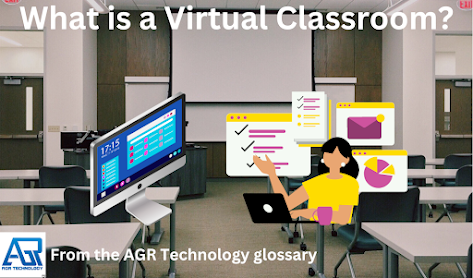In educational technology, a Virtual Learning Environment (VLE) or Virtual Classroom is a web-based platform for the digital parts of courses of study, typically within educational institutions. They present resources, activities, and interactions within the context of a course framework and outline the many levels of evaluation. VLEs typically report on participation and are integrated with other institutional systems.
They are frequently associated with Learning Management Systems and can sometimes be part of LMS software. VLEs can be utilized as authoring and design environments by teachers and instructors who update them. VLEs have been embraced by nearly all English-speaking higher education institutions.
What are some of the components behind a Virtual classroom application
VLEs are online education curriculums that enable content management, curriculum mapping and planning, learner involvement and administration, communication and collaboration, real-time communication, and linkages to external sources.
A VLE may include some or all of the following components:
Course Syllabus
Administrative information about the course
Notice boards for current information about the ongoing course
Basic course content
Video/audio conferencing for teachers to communicate with students in groups or individually
Additional resources
Self-assessment quizzes or analogous devices
Provide additional 3rd party embedded content such as web pages, videos, audio, and other documents
Formal assessment functions such as exams, essay submissions, or project presentations
Communication support mechanisms such as e-mail, threaded discussions, chat rooms, and social/web 2.0 functionality like Twitter.
The VLE can accommodate many courses over the whole academic program, providing a consistent interface inside the school and providing linkages to all other online learning spaces.
Read more: https://agrtech.com.au/glossary/virtual-classroom-learning-environment/







.png)



.png)
